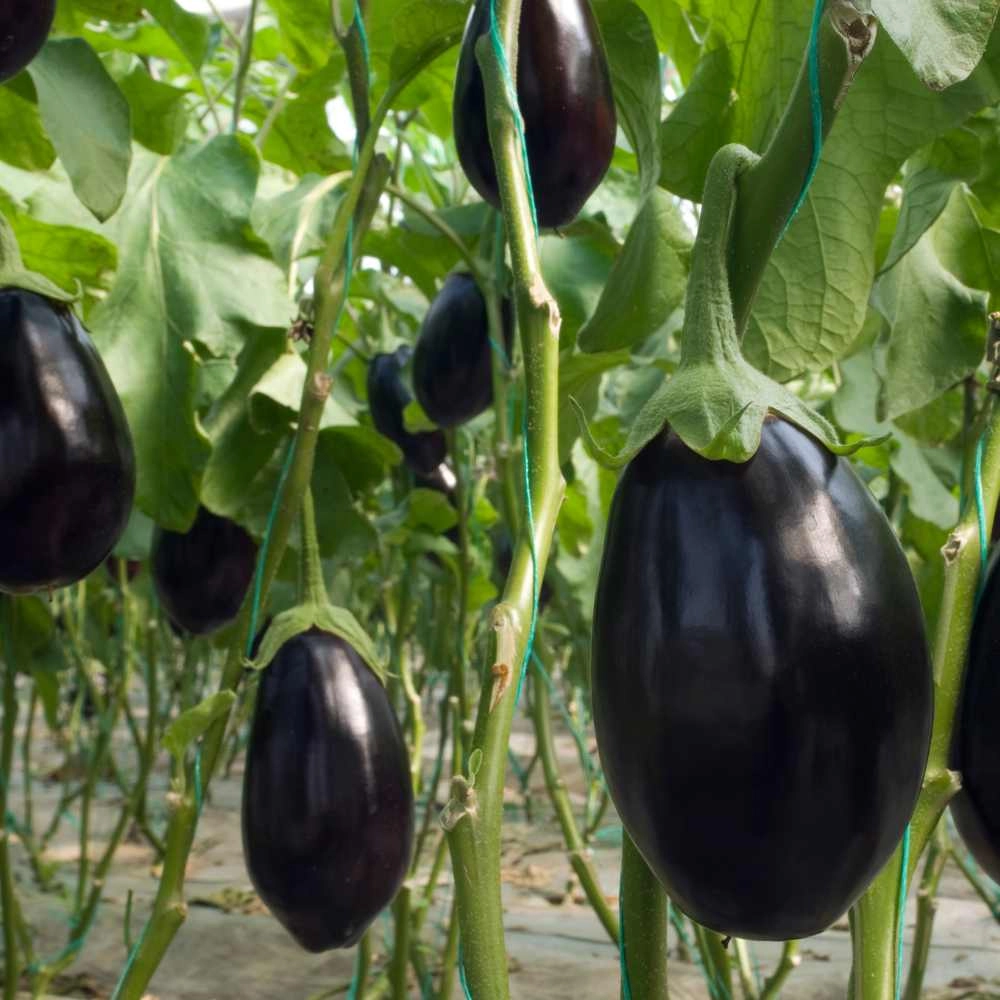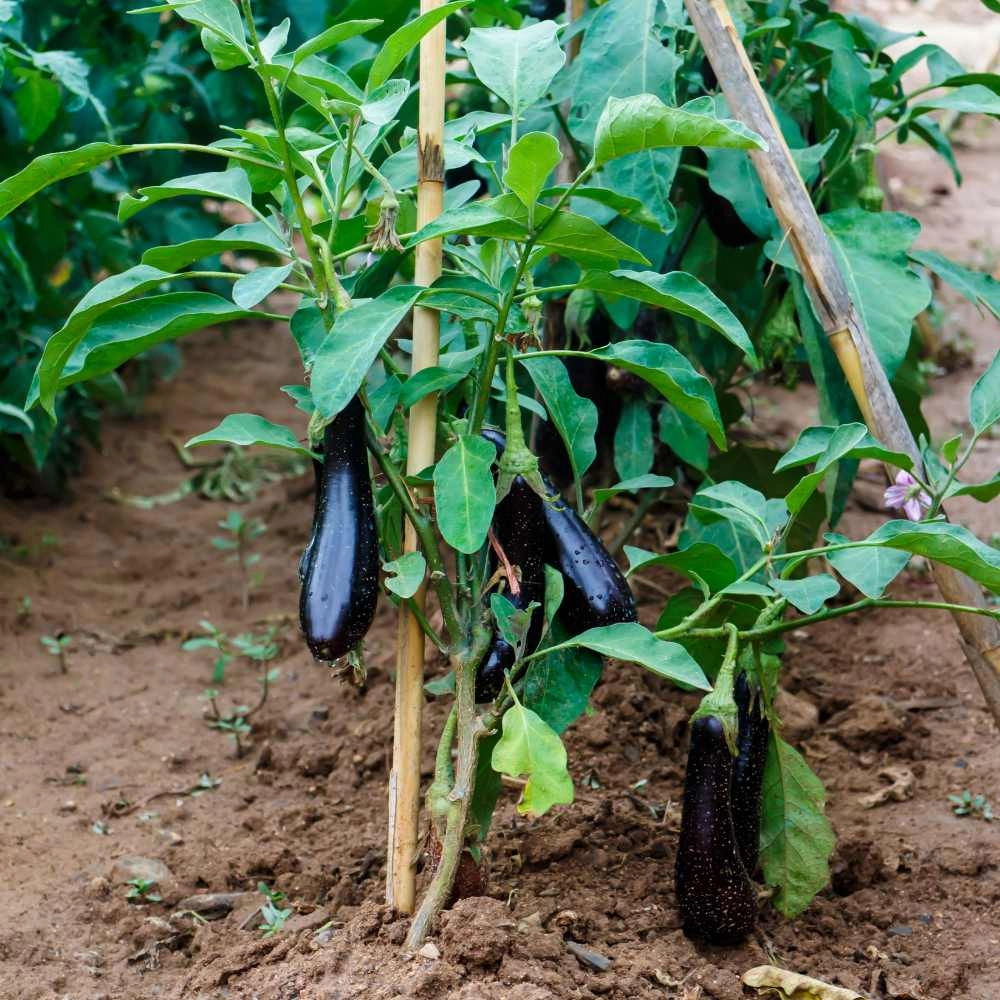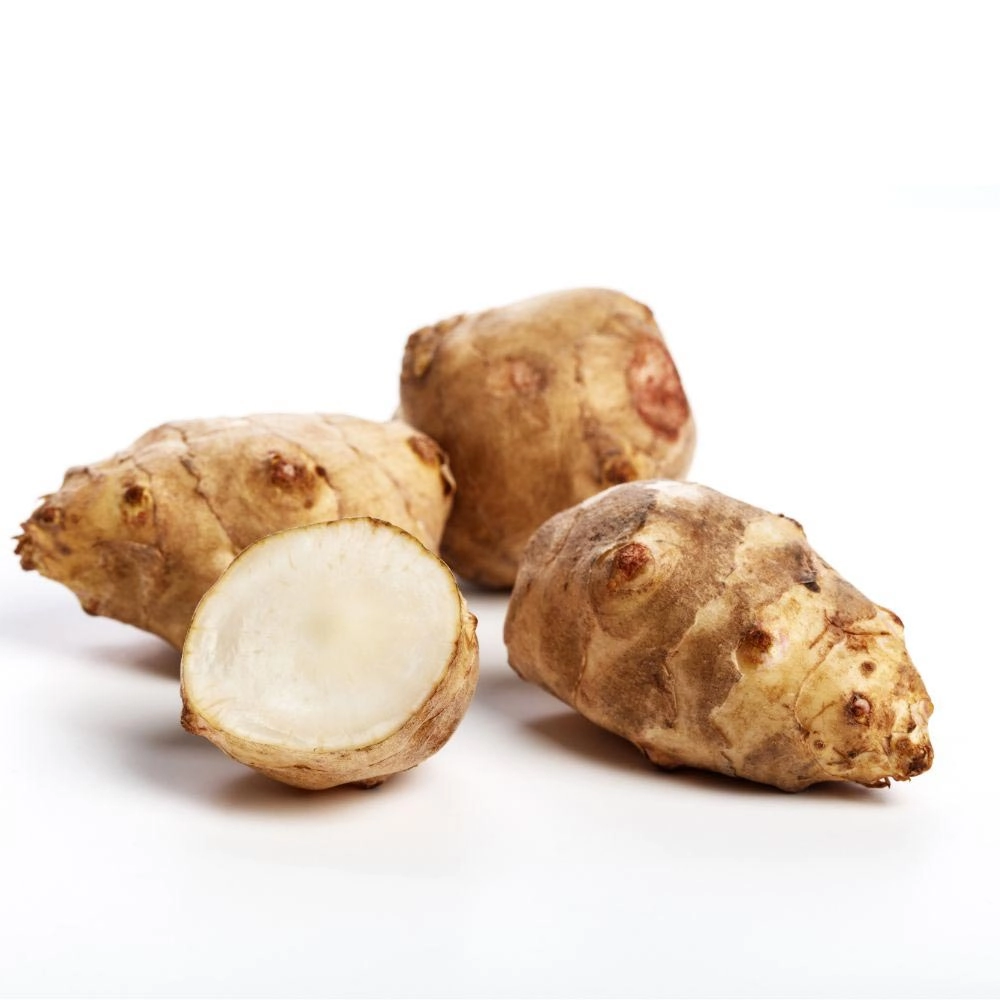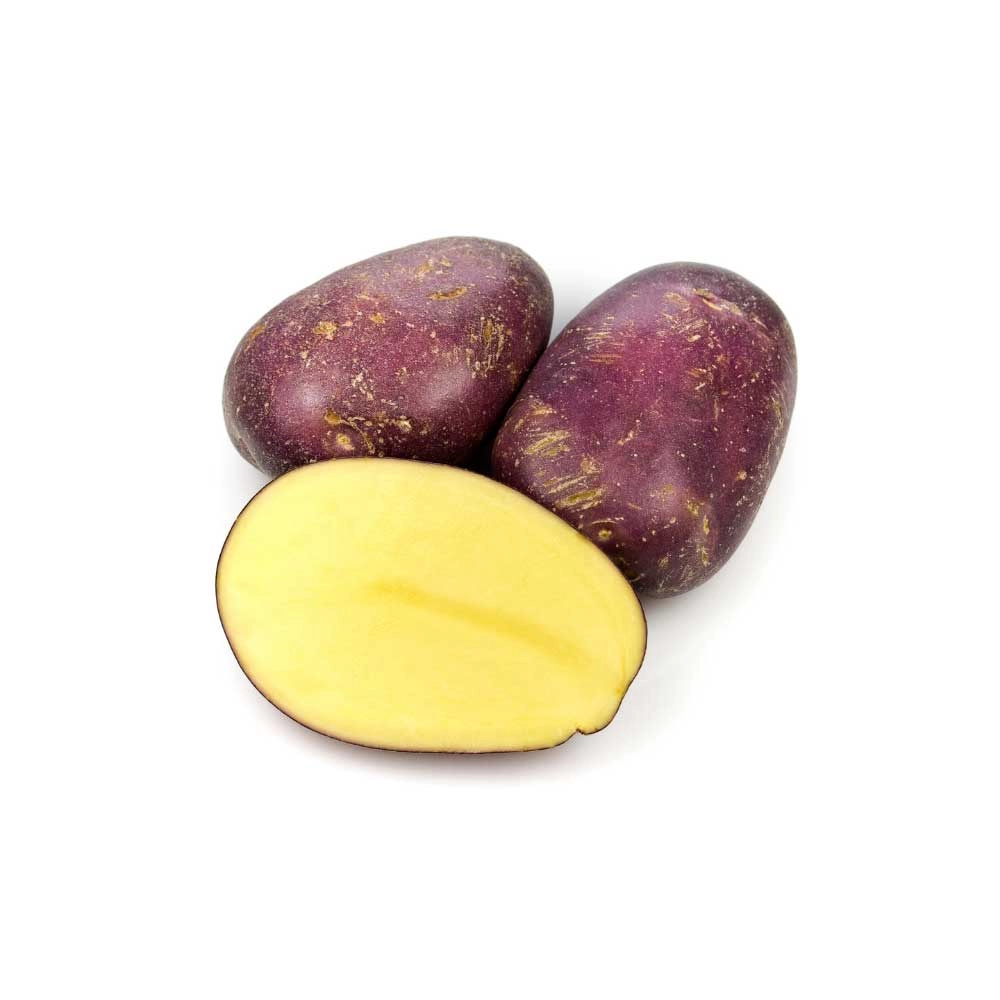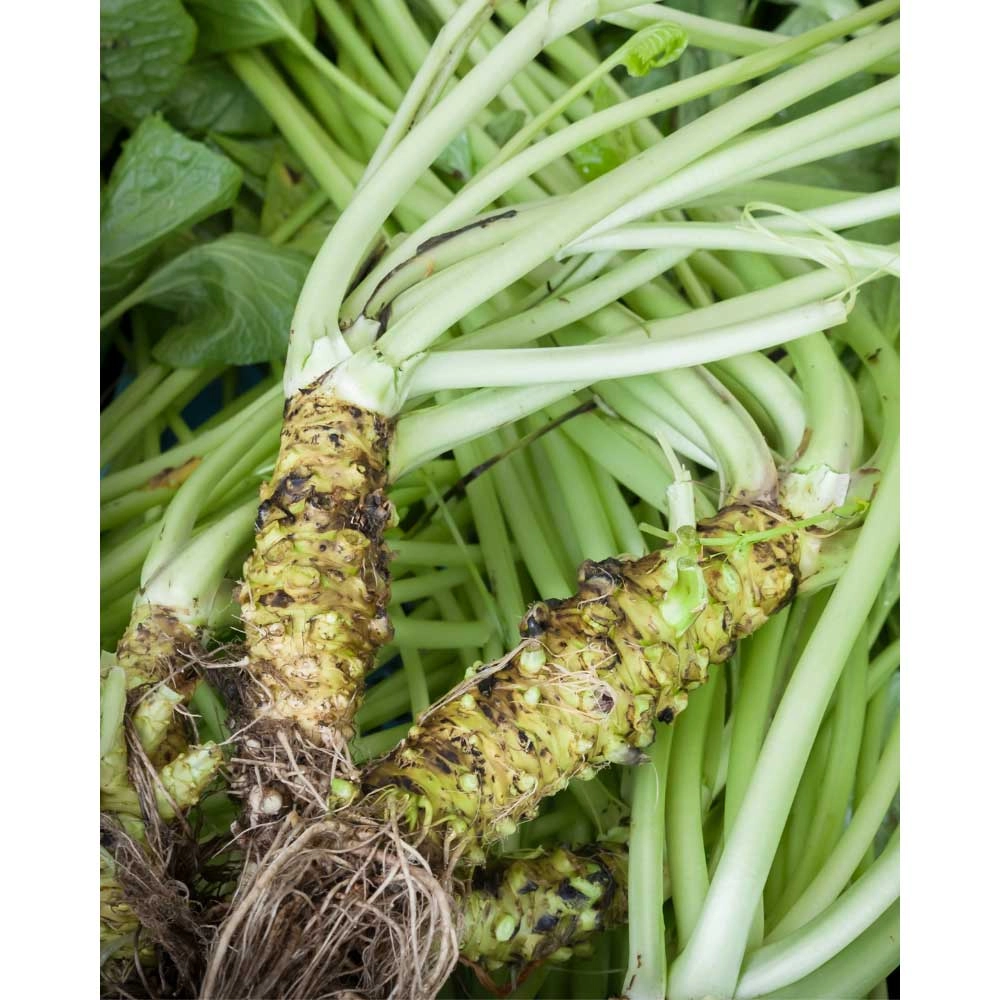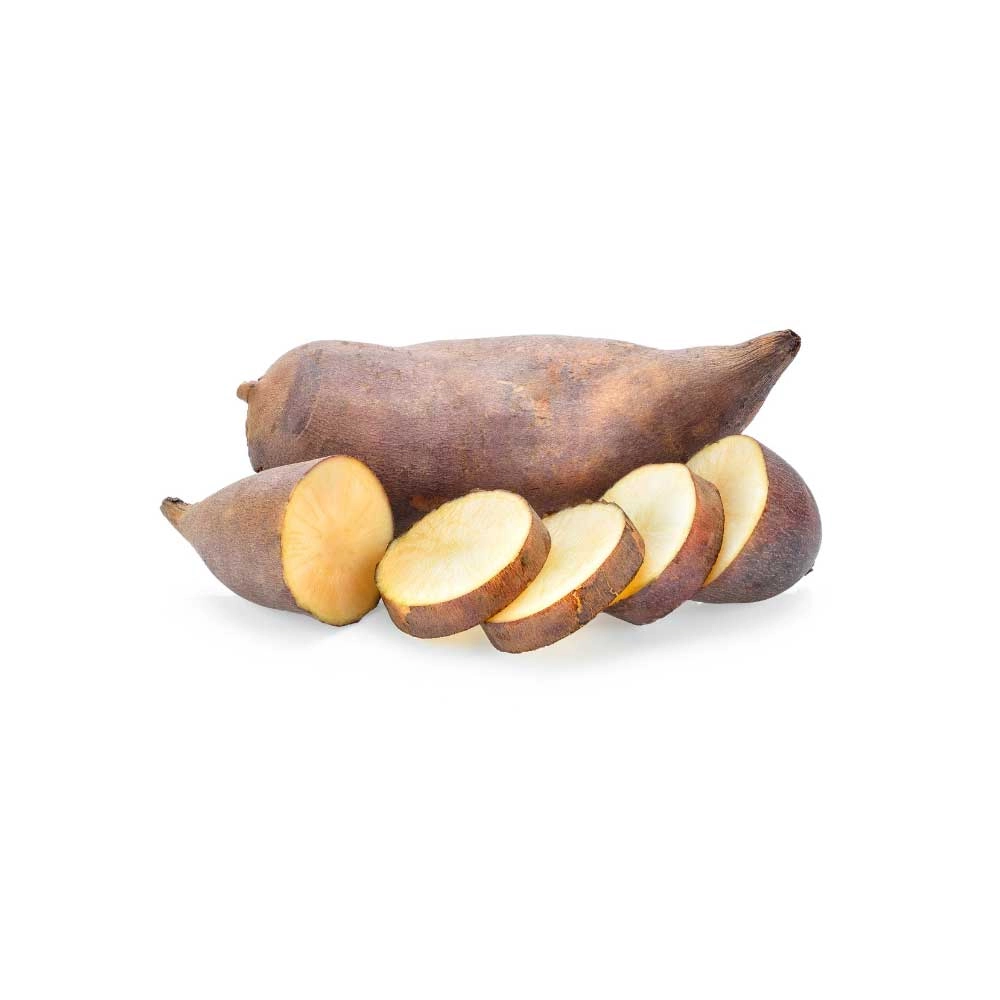Current highlights
From seed to splendor: How to successfully grow your own eggplant plants
From seed to splendor: grow your own eggplant plants easily in the garden or indoors! With the right seeds, soil, light and germination, you can choose from different varieties and grow your plants successfully. Whether pre-cultivation or direct sowing - with our tips for growing from seed, your eggplants will soon be shining in all their glory.
1 Introduction: The fascination of growing eggplants
Growing eggplants is a fascinating business that starts with the right selection and preparation of seeds. There are many different varieties of eggplants, which differ in size, color and taste. It is therefore important to pay attention to the desired characteristics when selecting the seeds. After purchase, you should prepare the seeds optimally to ensure a high germination capacity. The soil plays an important role here: a good soil mixture with sufficient nutrients promotes plant growth. Before sowing the seeds or planting them directly in the garden, you can also pre-cultivate them to speed up the germination process. During the growth process, the plants need plenty of light and regular care and fertilization to stay healthy and grow magnificently. However, diseases or pests can also occur - so you need to act quickly! When your plants are finally ripe, you need to determine the best time to harvest them: You can recognize ripe fruit by its shiny skin and firm flesh. The harvested eggplants then offer countless preparation options for delicious home-grown dishes - simply a delight!
2. choosing the seeds: Tips for the right variety
When it comes to growing eggplant plants from seed, choosing the right variety is an important step. There are countless varieties of eggplant seeds on the market, from large to small and from black to white. It is therefore important to choose a variety that suits the requirements of your garden and your culinary preferences. For example, if you have limited garden space or live in a cooler climate, you should look for a compact variety that is more suitable for growing in pots or pre-cultivation. Even if you want to see results quickly and don't have a lot of time to invest, you should opt for an easy-to-grow variety. Also consider the type of soil in your garden and choose a variety that grows well on your soil type. Also consider the light: some eggplant varieties need more sunlight than others. Overall, it is important to carefully consider which type of plant is best suited to your needs and to ensure that your planting is successful.
3. seed preparation: how to optimize seed germination
To grow magnificent eggplant plants, seed preparation is crucial. Optimizing the germination capacity of the seeds not only increases the chances of success when sowing, but also significantly influences the growth and yield of the plants. A simple method to increase germination is to soak the seed in warm water before sowing. This softens the outer layer of the seed and accelerates germination. Another option is pre-treatment with light or a special growth hormone solution to stimulate the natural germination process. Pre-cultivation indoors or in a greenhouse can also help, as this provides optimum conditions for the development of young plants. Care should be taken to ensure that there is sufficient light and that the substrate is kept sufficiently moist. By taking these measures, you can ensure that your eggplant seeds are optimally prepared and will germinate and grow quickly.
4. sowing and planting: steps to successful cultivation
Once you have selected and prepared the right seeds, it is time to sow and plant your eggplants. There are various ways to do this: either directly in the garden or by pre-cultivation in pots. If you opt for direct sowing, you should make sure that the soil is well prepared and loose enough to give the seedlings enough space to grow. For easy cultivation, you can also use special soil mixtures that are rich in nutrients and promote growth. If you opt for pre-cultivation, it is advisable to use small pots or seed trays with good drainage and place them in a sunny spot. Make sure your seeds get enough light and keep the soil moist but not wet - this will prevent mold growth. As soon as your seedlings are big enough (approx. 10 cm), they can be moved outside and planted in your garden. Don't forget to water regularly and make sure your plants get enough nutrients - they will grow quickly! With these simple steps for sowing and planting, you have laid a good foundation for successful eggplant cultivation!
5. care and nutrition during the growing process
Now that you have successfully selected, prepared and planted your eggplant seeds, it is time to take care of the care and nutrition of your plants during the growing process. Good soil preparation is crucial as it ensures optimal development of the plant roots. If you want to plant your eggplants directly in the garden, it is advisable to loosen the soil deeply and enrich it with compost or fertilizer. Alternatively, you can also pre-cultivate the plants in a pot and plant them outdoors later. A sufficient supply of light is also important for the growth of your eggplant plants. Make sure that the plants receive enough sunlight or provide artificial light sources if necessary. You should also make sure that your plants are watered regularly - preferably in the morning or evening - and that they do not dry out. To ensure the healthy growth of your eggplant plants, you should also ensure a balanced supply of nutrients. In addition to nitrogen, the plants also need phosphorus and potassium as well as trace elements such as iron or magnesium. An organic fertilizer can help here. Careful care and nutrient supply can help your own eggplant plants to grow healthily and magnificently. Pay attention to the needs of your plants and adapt your care accordingly. This way, nothing will stand in the way of a successful harvest of your own eggplants.
6. dealing with diseases and pests in eggplant plants
An important aspect of successfully growing eggplant plants is dealing with diseases and pests. There are various ways to protect your plants from damage and keep them healthy. One simple measure is to choose the right soil. Make sure it is nutrient-rich and loose enough for the roots to grow well. Sowing or pre-growing your seeds in a suitable substrate can also help to ensure healthy germination. Another important measure for protecting your eggplant plants is to place them correctly in the garden or on the balcony. Make sure that your plants get enough light and are not too close together to prevent fungal infestation. If diseases or pests do occur, there are various methods to combat them. For small infestations, you can try cutting off the affected areas or treating them with a natural insecticide. Regular inspection of your plants can also help to identify problems at an early stage and react quickly. All in all, good preparation by choosing the right seeds and careful cultivation and care are crucial for healthy and beautifully growing eggplant plants. Once you have laid a good foundation, any diseases or pests will not be a major problem.
7 Determine when to harvest: How do you recognize ripe fruit?
Once you have successfully grown your eggplant plants from seed, it is important to know when the fruits are ripe and can be harvested. The harvest time depends on the variety and can be between 60 and 90 days after sowing. A ripe eggplant has a shiny, even skin without spots or discoloration. If you squeeze the fruit lightly, it should be soft but not mushy. Ripe eggplants should also have reached a certain size - between 10 and 20 cm long and up to 10 cm in diameter, depending on the variety. Another indication of the right time is the appearance of the stalk: it should be woody and brown. It is better to harvest the fruit a little earlier than too late, as overripe eggplants can quickly become bitter. To check the ripeness of your eggplants, you can regularly inspect the plant and test individual fruits. If you have several plants, you can also try out and compare different harvest times. With a little practice, you will soon be able to determine the best time to harvest your eggplants. Overall, determining the right time to harvest is an important step in successfully growing your own vegetable plants such as eggplants. With patience and attention during the growing process, as well as observing the ripening indicators of your plants, you will soon be able to enjoy a bountiful harvest.
8 Preparation options for fresh eggplants
Once you have successfully grown your eggplant plants, it is time to harvest and enjoy the fruits of your labor. There are numerous ways to prepare fresh eggplants that are simple and delicious. One simple way to prepare eggplants is to roast them in the oven or on the grill. To do this, cut the eggplant into slices or cubes and place them on a baking tray or grill rack. Drizzle the pieces with olive oil and season with salt and pepper to taste. Then bake or grill them over a medium heat until they are soft and golden brown in color. Another delicious option is to fry the eggplant slices in olive oil. To do this, cut the eggplant into thin slices and dip them in the egg and breadcrumb mixture before deep-frying them in hot oil. Fried or steamed eggplants are also an excellent accompaniment to dishes. To do this, cut the eggplant into small pieces or cubes and fry or steam them with garlic, onions or other vegetables of your choice. If you like it exotic, you can also try baba ghanoush: For this famous oriental dish, grilled eggplants are pureed and mixed with tahini (sesame paste), garlic, lemon juice and spices. No matter which of the numerous preparation options you choose, fresh eggplants from your own garden are always a treat. Why not try out a few different recipes and experiment with the many ways you can use this delicious vegetable.
9. success stories from your own garden: Inspiration from home-grown eggplant plants
One of the best things about growing eggplants is the joy of seeing a tiny seed grow into a magnificent plant. Sowing and planting eggplants is easy and can be done directly in the garden or in pots. However, the seed should be carefully prepared before sowing to create optimum germination conditions. One way to do this is by pre-cultivating indoors with sufficient light and moisture. The right substrate also plays an important role in the growth of the plants. As soon as they germinate, they need plenty of light and nutrients to grow healthily and produce rich yields later on. It is important to keep the soil moist and to fertilize regularly. Despite good care, diseases or pests can occur - it often helps to take preventative measures early on or to intervene quickly to avert major damage. When the fruits are finally ripe, they can be harvested and offer a variety of preparation options. By successfully growing your own eggplant plants in the garden, you can not only expand your own culinary skills, but also find inspiration from the success stories of other gardeners - give it a try!
10.conclusion: Enjoy your own harvest of gorgeous eggplants
After all the effort you've put into your eggplant plants, the time has finally come: you can enjoy your own harvest! It's an incredibly satisfying feeling to see how the seeds you planted have grown into magnificent plants. Sowing and planting were just the beginning - during the growing process you had to make sure the plants got enough light and nutrients. But it was all worth it when you consider that you can now harvest fresh eggplants from your own garden. Whether directly in the ground or through pre-cultivation in the simple soil of your gardening - it all starts with the right varieties of seeds. When they germinate and grow, you can be proud of your home-grown vegetables. The taste of fresh eggplants from your own garden often surpasses even store-bought vegetables - give it a try!



